Only 28% Indian consumers trust advertisements; Want Government to create an advertising code and regulate misleading ads
- • Many citizens raise strong concerns about validity of Patanjali’s recent advertisement of Coronil
- • 75% consumers say, have come across celebrity ads which they later found to be misleading
- • 80% consumers say ads should be regulated by a Government body instead of an industry body
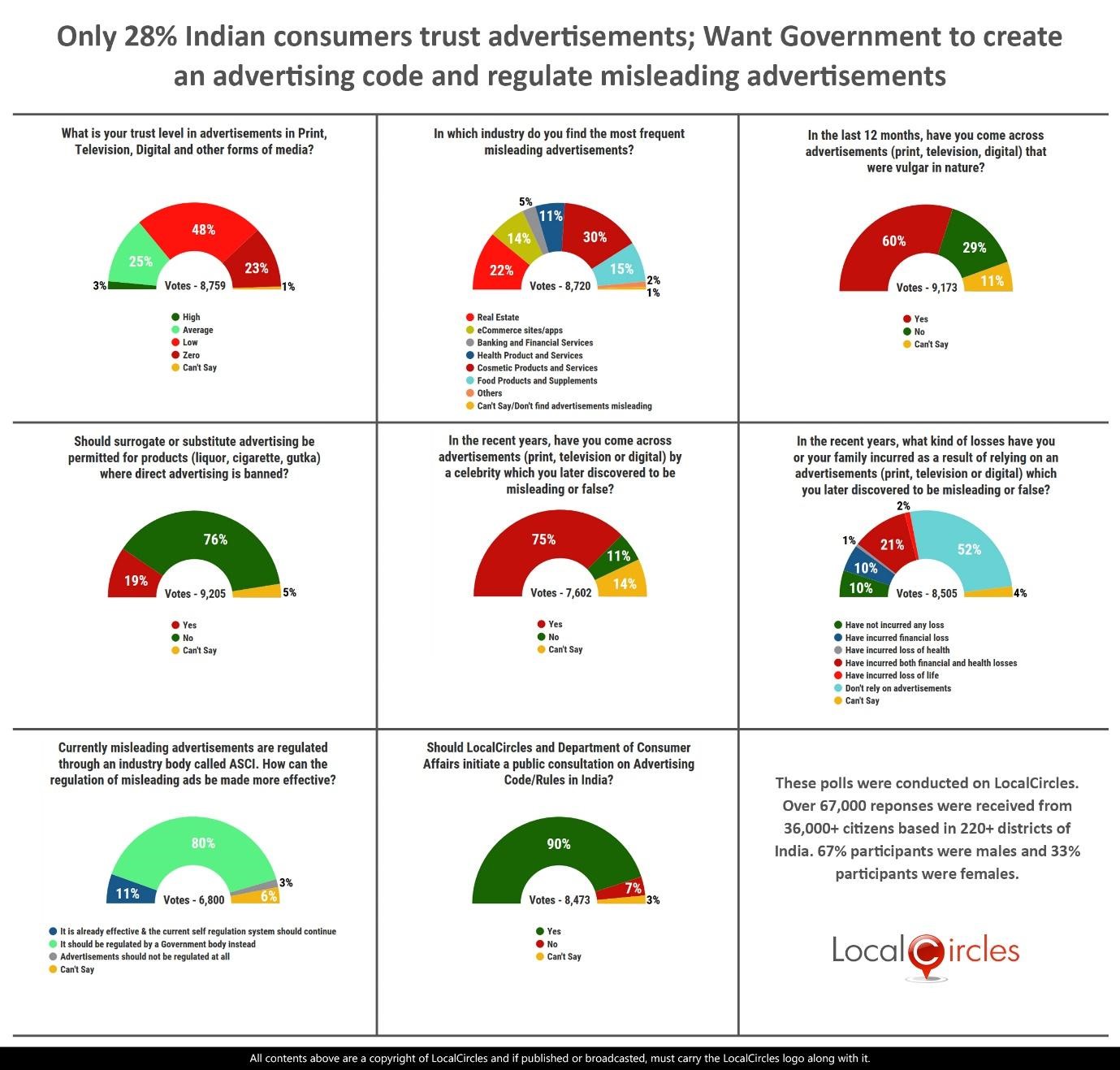
June 25, 2020, New Delhi: Companies spend millions of dollars in advertising every year to push product sales and building their brand image. But there is a fine line that separates good ads from misleading ads and unfortunately, many brands cross this line in pursue of higher sales. Earlier this week, Patanjali Ayurveda launched a ‘Coronil kit’ claiming to treat COVID-19. With the number of Coronavirus cases in India crossing 4,50,000 cases, this news created a flutter amongst the citizens and many are raising concerns about the authenticity of such remedies. The Government via Ministry of Ayush was quick to point out that such advertisements of drugs including Ayurvedic medicines are regulated under the provisions of Drugs and Magic Remedies (Objectionable Advertisements) Act, 1954, and asked Patanjali not to advertise this medicine as a cure to Coronavirus till they get a go ahead from them.
Consumers have reported frequent cases of content of ads being misleading and LocalCircles conducted an 8-poll survey to do a pulse check on the issue. The survey received more than 67,000 votes from 220+ districts of the country.
First question asked what is the level of trust they have in ads in print, TV, digital and other forms of media. Only 3% said they had a high level of trust while 25% said they had an average level trust in ads. 48% said low and 23% said they had zero trust in advertisements.
Only 28% consumers have trust in advertisements
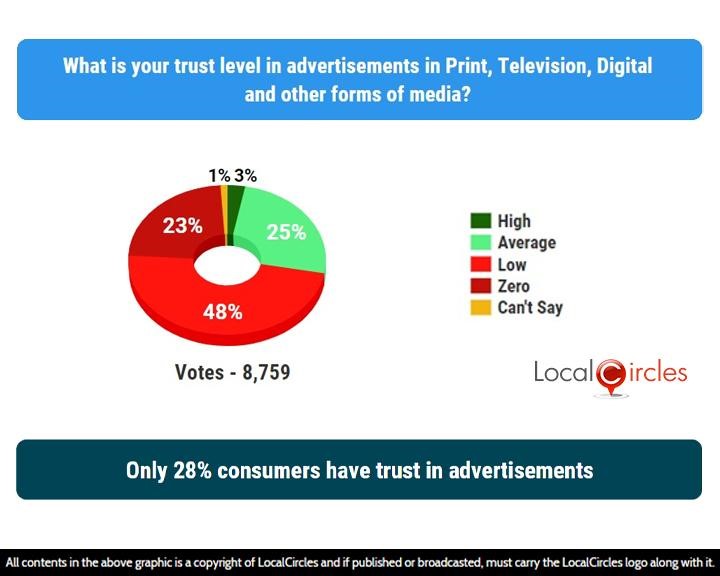
Newspapers nowadays are full of advertisements of different products and services. Many consumers have said that they have believed some ads in the past and bought the product, only to have their trust broken as everything shown in the ad was not true.
When asked in which industry they find most frequent misleading ads, 22% said real estate, 14% said ecommerce sites/apps, 5% banking and financial services and 11% health products and services. 30% said cosmetic products and services while 15% said food products and supplements. 2% said others.
Consumers find most misleading advertisements in cosmetic products/services and real estate sector
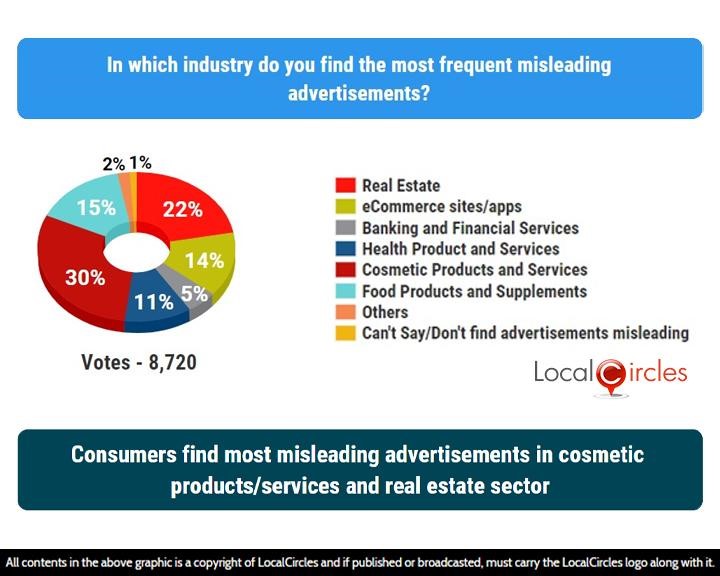
Consumers said that travel industry is another area where the ads are quite misleading. Many tour operators quote a price of the tour in an ad to attract customers, only to tell them that the price has many exclusions.
People were asked if, in the last 12 months, they had come across ads (print, TV or digital) that were vulgar in nature. 60% said yes and 29% said no.
60% consumers say in the last 12 months they have come across one or more vulgar advertisements
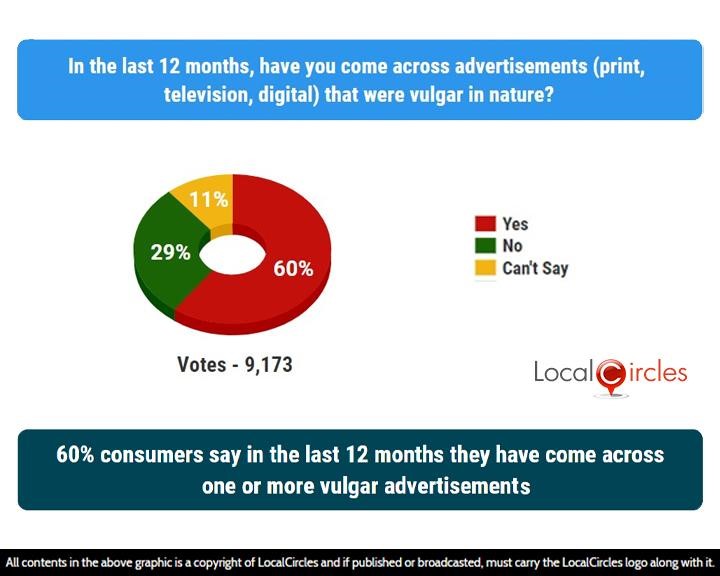
Be it condom ads during a cricket match or that ad of a deodorant which has a man surrounded by skimpily dressed females, Indians are struggling with vulgar ads especially with kids watching the broadcast too.
Surrogate advertising is a form of advertising which is used to promote products like cigarettes, tobacco and alcohol, in the guise of another product. People were asked if surrogate or substitute advertising should be permitted for products like liquor, cigarette and gutka, where direct advertising is banned. 76% said it should not be permitted while only 19% said it should be permitted.
76% consumers believe surrogate advertisements should not be permitted for products that are banned from being advertised
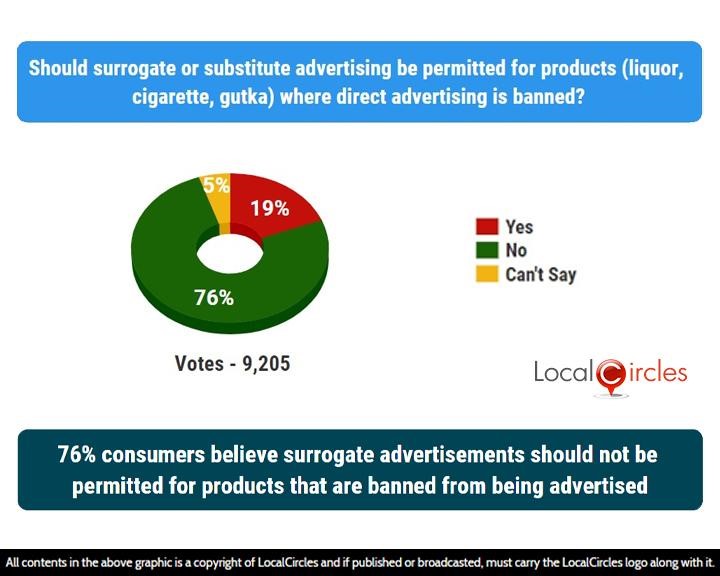
The Consumer Protection Act 2019 seeks to penalize misleading ads running on any medium, including television, radio, print, outdoor ads, e-commerce, etc. Manufacturers, service providers, and brand ambassadors found guilty will now face possible fines and jail terms for making misleading claims in ads.
The next question asked if in recent years people had come across advertisements by a celebrity which they later discovered to be false of misleading. 75% replied in a ‘yes’ while 11% said ‘no’.
75% consumers say they have come across a celebrity advertisement which they later discovered to be misleading or fake
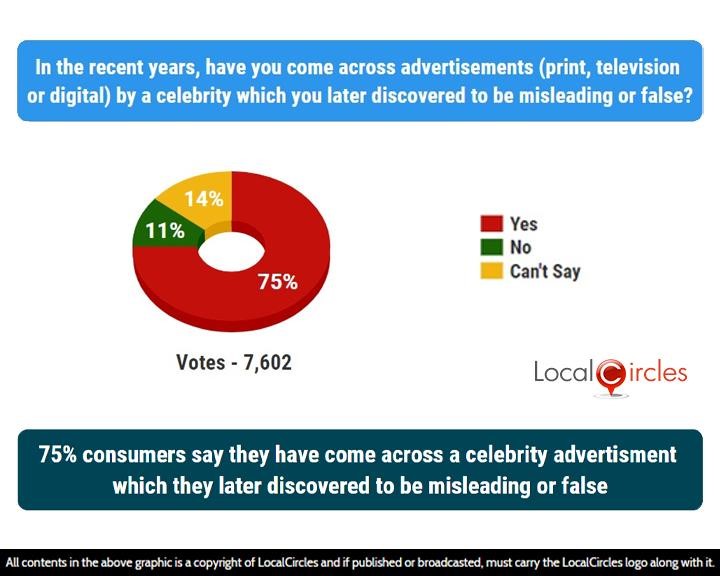
Following question asked in recent years, what kind of losses have they or their family incurred as a result of relying on an advertisement which they later discovered to be misleading or false. 10% said they had incurred a financial loss while 21% said they have incurred both financial and health losses. Just 1% said they had incurred loss of health and 2% have incurred a loss of life. 10% said they have not incurred any loss and 53% said they don’t rely on advertisements.
Majority of the consumers who rely on advertisements have faced some kind of loss due to them
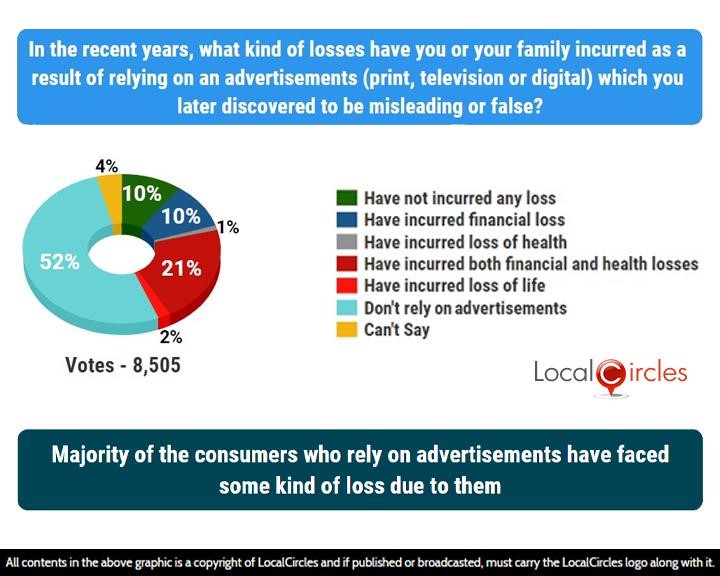
Currently, misleading ads are regulated through an industry body called ASCI, which in 2019 ordered a removal of 299 misleading ads. The final question asked how can the regulation of misleading ads be made more effective. 11% said it is already effective and the current self-regulation system should continue while 80% said it should be regulated by a Government body instead. 3% respondents said advertisements should not be regulated at all.
80% consumers want regulation of misleading advertisements to be done by a Government body instead of an industry body
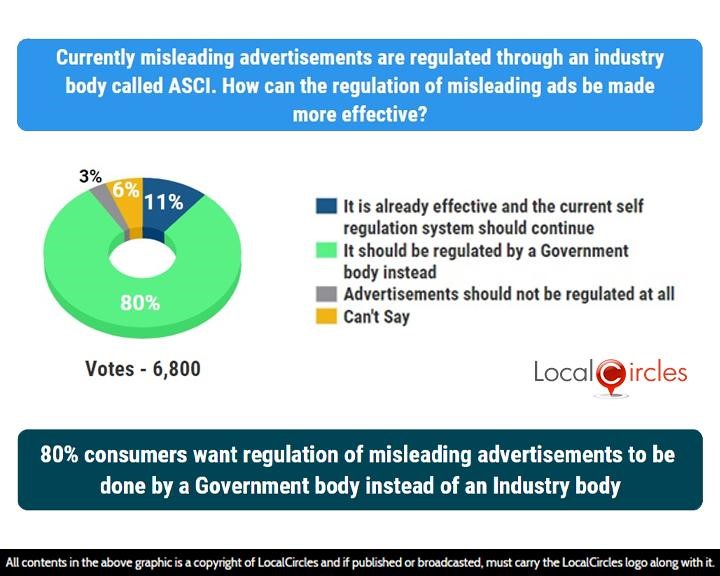
Many consumers rely on advertisements to know about the new and existing products and services in the market, hence it is imperative that advertising is done responsibly. Consumers hope that the Government will look into this matter and ensure that ads which mislead the consumers are minimised. LocalCircles has shared the findings of this survey with leadership of the Department of Consumer Affairs requesting them to take immediate action.
Survey Demographics
67,000 responses were received from 220+ districts of India. 71% respondents were men while 29% respondents were women. 51% respondents were from tier 1, 34% from tier 2 and 15% respondents were from tier 3, 4 and rural districts. They survey was conducted via LocalCircles platform and all participants are validated citizens who had to be registered with LocalCircles to participate in this survey.
About LocalCircles
LocalCircles, India’s leading Community Social Media platform enables citizens and small businesses to escalate issues for policy and enforcement interventions and enables Government to make policies that are citizen and small business centric. LocalCircles is also India’s # 1 pollster on issues of governance, public and consumer interest. More about LocalCircles can be found on https://www.localcircles.com
Akshay Gupta - media@localcircles.com, +91-8585909866
All content in this report is a copyright of LocalCircles. Any reproduction or redistribution of the graphics or the data therein requires the LocalCircles logo to be carried along with it. In case any violation is observed LocalCircles reserves the right to take legal action.


